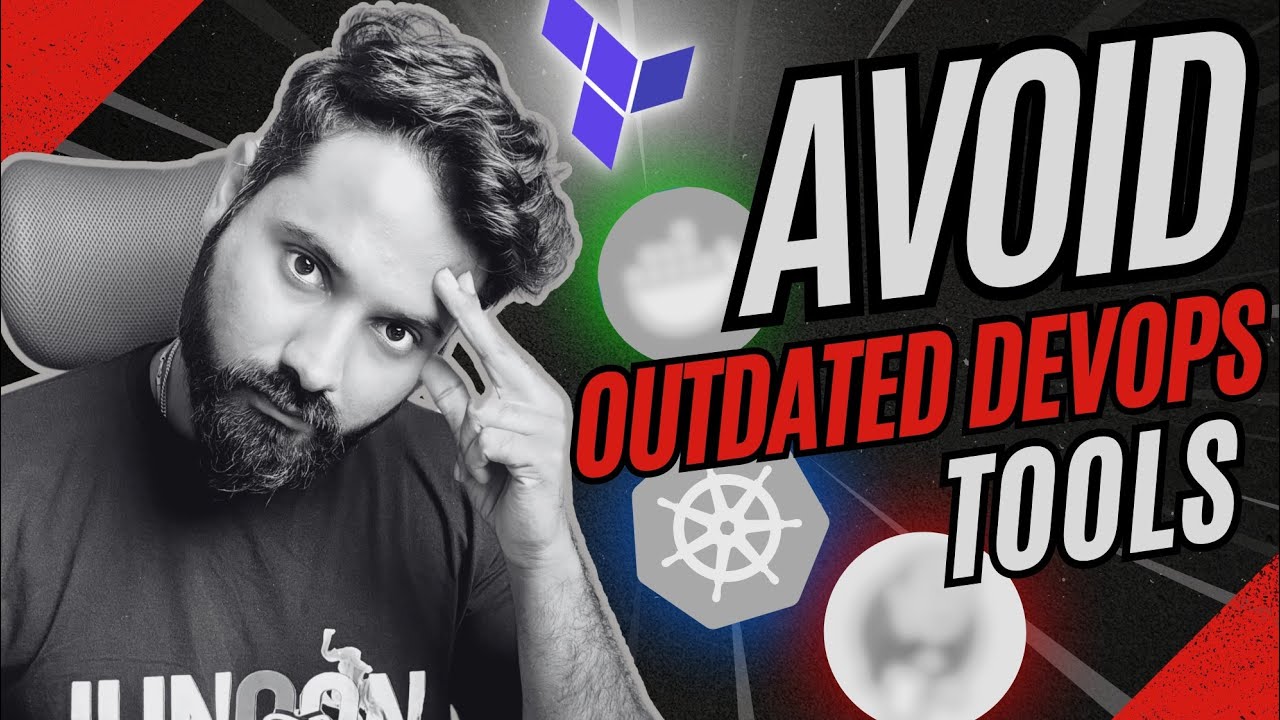Собеседование на должность DevOps-инженер. Рассказываю про нюансы
Summary
TLDRIn this video, the speaker provides an in-depth guide to preparing for DevOps job interviews, covering key topics like Linux, GitLab, Docker, and Kubernetes. The speaker shares personal experiences, offering examples of interesting interview questions and effective answers, including troubleshooting services in Linux, Kubernetes pod monitoring, and pipeline management in GitLab. Additionally, the video offers insights into best practices for Docker, system diagnostics, and database replication. Viewers are encouraged to explore related courses and join the speaker’s community for more detailed learning on these subjects.
Takeaways
- 😀 Linux interview questions often cover basics, but interesting ones may involve system service management, like creating and managing service files using systemctl.
- 😀 Interviewers might ask about troubleshooting service failures, including checking logs with systemctl and journalctl to diagnose issues.
- 😀 Kubernetes-related questions can range from basic cluster architecture to troubleshooting pod issues, such as monitoring non-responsive pods with external endpoints.
- 😀 In Kubernetes, service selectors help route traffic, and understanding ingress and network policies (e.g., CSI) can be crucial for deeper technical discussions.
- 😀 Understanding GitLab pipeline dependencies and stages is important, especially how one stage can depend on others using specific flags and stages in the configuration.
- 😀 Docker-related questions often focus on best practices like using image hash tags for secure, specific image versions rather than mutable tags.
- 😀 Knowing the difference between `RUN`, `CMD`, and `ENTRYPOINT` in Dockerfiles is essential, with each serving different purposes in image build and container runtime configurations.
- 😀 For database-related questions, understanding synchronous vs. asynchronous replication and how sharding and replication affect database scaling is important.
- 😀 DevOps interviews often ask about monitoring setups, such as creating dashboards or using different stacks for monitoring, highlighting practical skills in observing system health.
- 😀 The video encourages not just theoretical knowledge but also practical experience through completing assignments and building a portfolio, which will help during interviews.
- 😀 The importance of continuous learning is stressed, with the creator offering resources like courses, workshops, and practical challenges to stay up-to-date and improve one's skills.
Q & A
What is the main focus of the video?
-The video focuses on providing insights and examples of common interview questions related to DevOps roles, particularly regarding Linux, GitLab, Docker, Kubernetes, and related technologies.
What is the most important thing to highlight during a DevOps interview, according to the script?
-It's important to not only demonstrate theoretical knowledge but also practical experience. Showing that you've worked hands-on with the technologies will help you stand out during the interview.
What should you do if a service doesn’t start after creating a systemd service file?
-You should reload the systemd manager with the command `systemctl daemon-reload` to ensure the new service is recognized. After that, you can start the service and check its status.
What is the significance of journalctl in troubleshooting services?
-`journalctl` helps you view logs for services and diagnose issues. You can filter logs based on the unit or service name, which helps you identify any errors or missing components.
How would you troubleshoot a Kubernetes pod that is not responding to external requests?
-One way to monitor a pod's health is by using a BlackBox Exporter to periodically ping the pod's endpoint. If the pod is still alive but not responding, this can help identify whether it's truly dead or just unresponsive.
What are the key components of a Kubernetes cluster?
-A Kubernetes cluster consists of master nodes, worker nodes, and components such as etcd, kube-apiserver, kube-scheduler, and kube-proxy. These components manage the deployment, scaling, and operation of containers.
What is the difference between readiness and liveness probes in Kubernetes?
-A readiness probe checks if a container is ready to accept traffic, while a liveness probe checks if the container is still running. If the liveness probe fails, Kubernetes restarts the container, whereas if the readiness probe fails, traffic is not routed to the container.
How can you ensure that a GitLab pipeline step depends on another step?
-You can specify dependencies between pipeline steps using the `needs` keyword in GitLab CI. This ensures that a job will wait for a specific job to complete before it starts, but it doesn’t wait for the entire previous stage to finish.
What is the difference between the `RUN`, `CMD`, and `ENTRYPOINT` instructions in Dockerfiles?
-`RUN` executes commands during the image build process, typically for installing dependencies. `CMD` defines the default command to run when the container starts, but it can be overridden. `ENTRYPOINT` sets a fixed command that cannot be overridden unless using specific options.
How do synchronous and asynchronous replication differ in database systems?
-In synchronous replication, data is written simultaneously to both the primary server and its replicas, ensuring consistency. In asynchronous replication, data is written to the primary server first, and then later copied to replicas, potentially with some delay.
Outlines

This section is available to paid users only. Please upgrade to access this part.
Upgrade NowMindmap

This section is available to paid users only. Please upgrade to access this part.
Upgrade NowKeywords

This section is available to paid users only. Please upgrade to access this part.
Upgrade NowHighlights

This section is available to paid users only. Please upgrade to access this part.
Upgrade NowTranscripts

This section is available to paid users only. Please upgrade to access this part.
Upgrade NowBrowse More Related Video

DevOps Roadmap for beginners

DON'T Do These DevOps Tools | Outdated Tools = NO JOB (Hindi)

DevOps 2025 Roadmap by Abhishek Veeramalla [Updated]

Top 20 DevOps Tools You Need to Know | DevOps Tools Tutorial | Edureka

How I’d Learn to Code in 2024 (if I could start over)

Just learn these tools to become DevOps Engineer in 2026
5.0 / 5 (0 votes)